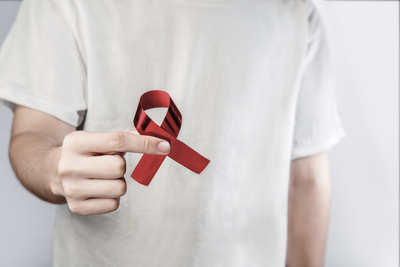
Different drugs merit different treatment approaches — especially as they pertain to injection drug use, HIV, and mortality rates.
“People who inject drugs and have HIV experience high mortality and face many obstacles in accessing care,” says the National Institute on Drug Abuse (NIDA). The good news? Researchers have determined that integrated interventions are an effective way to support both the health and the survival of this population. Here’s a closer look at the research on this topic, along with more information on why integrated interventions matter.
About the Research
According to research published in The Lancet, people who inject drugs (PWID) not only have a higher incidence of HIV but also have little access to antiretroviral therapy (ART) and medication-assisted treatment (MAT). High mortality is an unfortunate outcome. In response to these statistics, scientists set out to determine whether integrated and flexible interventions would lead to better outcomes.
Their ultimate determination was that participants in the intervention group — which included immediate referral to anti-HIV therapy, assignment of a “systems navigator” to help participants stay in treatment for HIV and substance abuse, and psychosocial counseling — came out ahead of the standard of care group both in terms of engaging in HIF treatment and viral suppression. They also died at half the rate.
“Given the strength of the effect of the intervention, its implementation among HIV-infected PWID should be considered,” conclude researchers.
Lead researcher Dr. William Miller told NIDA Notes, “Although this trial was conducted in three global sites, it has important lessons for the opioid crisis in the United States as well. Systems navigation and case management can help people get the care they need. Hopefully, this study will support that in the United States.”
While these findings can come into play across all segments of the population, they’re especially relevant to members of the LGBTQ community, who are at high risk for both addiction and HIV.
Building on What We Know
The research supports the principles of effective treatment that have emerged from decades worth of scientific research, as delineated by NIDA. These include the following:
- that no single treatment is right for everyone
- that effective treatment addresses all of a patient’s needs — beyond their drug use
- that counseling and other behavioral therapies are the most commonly used forms of treatment
- that medications are often an important part of treatment — especially when combined with behavioral therapies
- that treatment plans must be regularly reviewed and modified
- that treatment should address other possible mental disorders
- that treatment programs should not only test patients for HIV and other infectious diseases but also teach them steps they can take to reduce their risk

Integrated interventions save lives, say researchers.
Concludes NIDA of the many treatments for drug addiction, “A range of care with a tailored treatment program and follow-up options can be crucial to success. Treatment should include both medical and mental health services as needed. Follow-up care may include community- or family-based recovery support systems.”
St. Louis area substance abuse treatment center Harris House’s holistic approach to treatment and recovery is keenly aligned with these and other findings. Using a treatment philosophy that targets the integrated healing of mind, body, and spirit, Harris House recognizes the importance of comprehensive individualized treatment and recovery plans for every person struggling with a substance use disorder. To learn more about our LGBTQ addiction treatment programs, contact us today.







